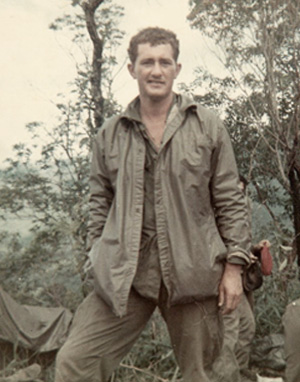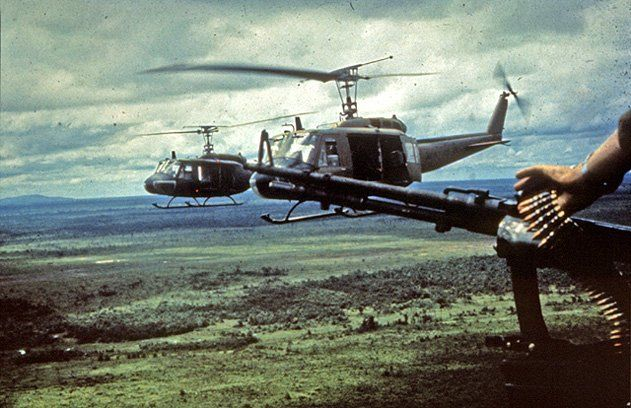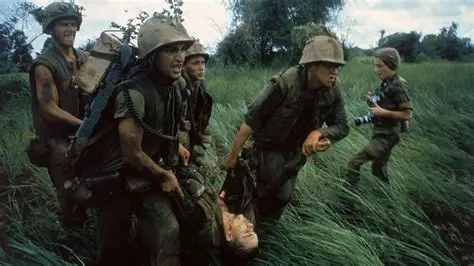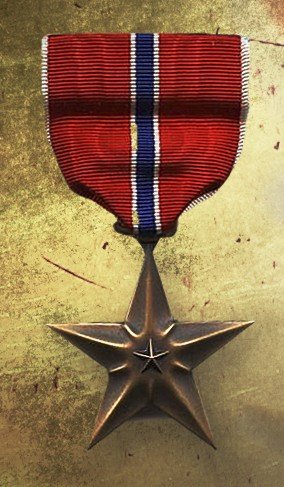Corporal Leroy Hopkins Jr. – A Son of Carolina, Standing Tall with the Cav
From the quiet streets of Kershaw to the jungles of Quang Tin — a soldier’s journey of duty, love, and sacrifice.
October 23, 2025

 Corporal Leroy Hopkins Jr.
Corporal Leroy Hopkins Jr.
1st Cavalry Division – 5th Battalion, 7th Cavalry, D Company
Light Weapons Infantryman
Born: June 12, 1941 – Kershaw, South Carolina
Killed in Action: October 23, 1967 – Near Van Dong, Quang Tin Province, South Vietnam
There are names etched in stone that seem to whisper when the wind passes — quiet reminders of ordinary men who carried extraordinary burdens. Among them is Corporal Leroy Hopkins Jr, a son of Kershaw, South Carolina, whose journey from small-town life to the far reaches of Vietnam reflects the story of an entire generation called to serve in a distant and uncertain war.
Born on June 12, 1941, to Leroy Hopkins Sr. and Jessie Mae Small Hopkins, Leroy grew up in a community where hard work and faith were the pillars of daily life. Kershaw, with its tree-lined streets and close-knit neighborhoods, was the kind of place where everyone knew everyone, and a man’s word still carried the weight of honor. It was here that Leroy learned responsibility early, helping his family and earning the respect of those who saw him as quiet but steady — the kind of young man who never sought attention but always delivered when called upon.
It was here that Leroy learned responsibility early, helping his family and earning the respect of those who saw him as quiet but steady — the kind of young man who never sought attention but always delivered when called upon.
In time, life took him westward, to Florence, Arizona, where he married Patricia King. Their union bridged two very different parts of America — the red clay soil of South Carolina and the sun-baked desert of Arizona — but it was rooted in the same timeless values of love, faith, and perseverance. To those who knew them, Leroy and Patricia were the picture of devotion. Their time together would be heartbreakingly short, but in those fleeting years they built a bond strong enough to outlast war, distance, and death itself.
Called to Serve
By 1967, the Vietnam War had grown into a defining test for the United States. Television screens brought images of rice paddies, helicopters, and jungle firefights into American living rooms. For many young men, service was no longer a matter of choice. When Leroy Hopkins Jr. received his draft notice through the Selective Service, he answered the call without protest. On May 8, 1967, he entered the U.S. Army — joining a long tradition of Carolina men who had gone to war when the nation asked.
After completing basic training, he was assigned to Company D, 5th Battalion, 7th Cavalry Regiment, part of the legendary 1st Cavalry Division (Airmobile).  The very name “7th Cavalry” carried the weight of history — from the plains of the American West under Custer to the Ia Drang Valley in Vietnam, where the unit had already carved its place in the annals of modern warfare. For Hopkins, joining such a storied regiment was both an honor and a challenge. The Cav was known for its demanding pace, its daring air assault tactics, and its fierce esprit de corps.
The very name “7th Cavalry” carried the weight of history — from the plains of the American West under Custer to the Ia Drang Valley in Vietnam, where the unit had already carved its place in the annals of modern warfare. For Hopkins, joining such a storied regiment was both an honor and a challenge. The Cav was known for its demanding pace, its daring air assault tactics, and its fierce esprit de corps.
In the jungles of central Vietnam, Leroy served as a Light Weapons Infantryman — a rifleman at the sharp edge of the conflict. Day after day, he moved through dense brush and rugged terrain, where every sound might conceal an ambush, and every moment of quiet could shatter into chaos. The 5th Battalion operated in the Quang Tin Province, a region of steep hills, narrow valleys, and small villages that often hid North Vietnamese Army units moving along the Ho Chi Minh Trail.
Life in the field was grueling. Soldiers lived under constant threat from snipers, booby traps, and sudden firefights that erupted without warning. Yet those who served beside Hopkins remembered him as steady, calm, and quietly courageous — a man who carried his pack, shared his rations, and never complained, no matter how long the march or how heavy the rain.
The Battle Near Van Dong
On October 23, 1967, near the hamlet of Van Dong in Quang Tin Province, Corporal Hopkins and his unit were engaged in combat operations against a well-entrenched enemy force. The exact details of that day are blurred by the fog of war, but what is known is that his company encountered fierce resistance from North Vietnamese soldiers positioned in the surrounding jungle. The fight was close and chaotic — small arms, machine-gun fire, and mortar rounds tearing through the thick vegetation.
https://s3.amazonaws.com/img.ghostsofthebattlefield.com/content/corporal-leroy-hopkins-jr-a-son-of-carolina-standing-tall-with-the-cav-68fa5cd4dda1d.pnghttps://s3.amazonaws.com/img.ghostsofthebattlefield.com/content/corporal-leroy-hopkins-jr-a-son-of-carolina-standing-tall-with-the-cav-68fa5cd4dda1d.png In the midst of that clash, Corporal Hopkins was struck by enemy small-arms fire. His comrades did all they could, but the wound was mortal. In a war where loss was constant and often senseless, his death hit hard among the men of D Company. They would later remember him not for dramatic heroics, but for something rarer: quiet constancy. He was, they said, the kind of soldier who simply did what needed doing — and did it well.
In the midst of that clash, Corporal Hopkins was struck by enemy small-arms fire. His comrades did all they could, but the wound was mortal. In a war where loss was constant and often senseless, his death hit hard among the men of D Company. They would later remember him not for dramatic heroics, but for something rarer: quiet constancy. He was, they said, the kind of soldier who simply did what needed doing — and did it well.
Honor and Memory
For his valor and sacrifice, Corporal Hopkins was awarded the Bronze Star, the Air Medal, and the Purple Heart. Each decoration tells part of his story — the courage under fire, the days and nights spent flying into combat zones, the ultimate price paid in service to his nation.
Today, his final resting place is in Kershaw City Cemetery, a world away from the jungles of Quang Tin. The headstone is simple, as he was in life. Beneath his name and rank, the dates mark only twenty-six years of life — brief by any measure, but filled with meaning.
And yet, his memory reaches far beyond that quiet Carolina cemetery. His name is carved into the Vietnam Veterans Memorial Wall in Washington, D.C. — Panel 28E, Line 55. There, among more than 58,000 others, it glints beneath the sunlight, one of countless reflections of sacrifice. Visitors who trace the letters with their fingers will never know his voice, his laughter, or the exact way he shouldered his rifle — but through remembrance, they keep him alive.
A Son of Two States
Corporal Hopkins’s life bridged the American South and Southwest — from the green fields of South Carolina to the deserts of Arizona. Each place shaped a part of him. In Kershaw, he learned family, duty, and community. In Arizona, he found love and the dream of a shared future. That dual heritage makes his story uniquely American — the blending of roots and horizons, tradition and change, the journey of a man who carried his faith and decency into the crucible of war.
For his wife Patricia King Hopkins, the telegram announcing his death was a shattering moment that marked the end of the life they had begun together. Yet she, like so many others, chose to carry forward his memory rather than let grief consume her. Families like hers became silent pillars of the nation’s endurance — holding photographs, medals, and folded flags as sacred tokens of lives cut short.
The Cav Legacy
The 5th Battalion, 7th Cavalry Regiment had seen its share of battles by the time Hopkins joined its ranks. The “First Team,” as the 1st Cavalry Division called itself, had pioneered the concept of airmobility — using helicopters to insert and extract troops rapidly across the battlefield. It was a revolutionary way to fight, giving U.S. forces the ability to move through difficult terrain and strike hard at enemy positions.
But mobility came at a price. Soldiers of the Cav often found themselves deep in hostile territory, surrounded, and fighting for survival. The 7th Cavalry’s emblem — the crossed sabers and yellow shield — became both a badge of pride and a symbol of sacrifice. Hopkins joined knowing the risks, but he went willingly, carrying the traditions of those who came before him.
 Even today, veterans of the 7th Cavalry remember men like Leroy Hopkins as part of their living lineage — brothers who fought and fell, but never truly left the ranks. In reunions, in memorial services, and on social media pages dedicated to the “Garryowen” spirit, his name still surfaces — proof that memory, once kindled, does not fade easily.
Even today, veterans of the 7th Cavalry remember men like Leroy Hopkins as part of their living lineage — brothers who fought and fell, but never truly left the ranks. In reunions, in memorial services, and on social media pages dedicated to the “Garryowen” spirit, his name still surfaces — proof that memory, once kindled, does not fade easily.
Reflections from the Home Front
Back home in Kershaw, word of his death rippled through the small community. For his parents, Leroy Sr. and Jessie Mae, it was an unthinkable loss. The Gold Star hung in their window, and neighbors came bearing casseroles and condolences, knowing that nothing could truly fill the void.
The Vietnam War divided America, but in towns like Kershaw, it was personal. Each casualty report carried the name of someone’s son, brother, or friend. For the Hopkins family, the war would forever be more than a headline or a history lesson — it was a wound that never fully healed.
Over time, though, the bitterness softened into pride. They took solace in knowing that Leroy had done his duty with honor, that he had represented his town and his family with quiet dignity. His sacrifice, like that of so many others, became part of the fabric of their faith — a belief that courage and character matter, even when the world seems adrift.
A Legacy Preserved
At Ghosts of the Battlefield, Corporal Leroy Hopkins Jr.’s story is more than a name and date — it is a living testament to the men who walked into the unknown because their country asked them to. Through personal artifacts, archival research, and stories preserved by comrades and family, his journey is given voice once again. Visitors who encounter his profile are invited not only to remember him but to understand him — as a man, a husband, a son, and a soldier.
Every photograph, every uniform, every entry in a morning report tells part of the story. But the greater story is about endurance — the kind that binds generations together across time. Hopkins’s service reminds us that courage isn’t always loud or dramatic. Sometimes it’s found in the quiet resolve to keep moving forward through fear and exhaustion, to shoulder a rifle, and to stand one’s ground.
The Cost of Freedom
The year 1967 marked one of the most violent periods of the Vietnam War. The Tet Offensive was only months away, and the nation itself was increasingly divided. Yet in the jungles and rice paddies, men like Corporal Hopkins were not fighting for politics or headlines. They were fighting for each other — for the soldier to their left and right, for the belief that their presence might protect someone else’s tomorrow.
Leroy Hopkins never lived to see the war’s end, but his actions and the example he set live on. His name may not appear in history books beside generals or politicians, but in the truest sense, he represents the heart of the American fighting man — steadfast, humble, and brave.
Final Rest
Today, visitors to Kershaw City Cemetery can find his grave among the quiet rows of markers. It is a peaceful place, touched by Carolina sun and the murmur of wind through the trees. The inscription bears witness to a short life of great meaning. From time to time, veterans or family members stop to place a flag or a flower. In that gesture, the circle of memory remains unbroken.
Far to the north, in Washington, D.C., his name shines among the 58,000 engraved on the black granite of the Vietnam Veterans Memorial. Each name is a story — a heartbeat, a family, a future left unfinished. Together, they form a chorus of sacrifice that reminds the living of what was given in their name.
Epilogue
Corporal Leroy Hopkins Jr. was a son of Carolina who stood tall with the Cav. His service bridged the small towns of the American heartland and the tangled jungles of Southeast Asia. Though his life ended far from home, his spirit endures wherever the story of the 1st Cavalry Division is told, and wherever Americans pause to remember the cost of freedom.
He gave everything he had for the country that raised him — a quiet man who met war with courage, and whose name, now carved in stone, continues to speak across generations:
Honor. Duty. Sacrifice.
 Corporal Leroy Hopkins Jr.
Corporal Leroy Hopkins Jr.